Creating a podcast requires much more than just sitting in front of a microphone and talking. While great content and an engaging voice are essential, using the right tools can significantly improve your podcast’s production value, streamline your workflow, and help you grow your audience. From recording and editing software to hosting platforms, marketing tools, and even ways to monetize your podcast, a wide range of resources can help podcasters at every level of experience.
In this article, we’ll cover over 60 essential tools for creating a successful podcast, from hardware to software, and from marketing to monetization. Whether you’re a beginner just starting out or a seasoned podcaster looking to level up your show, these tools will equip you with everything you need to produce high-quality content and build a loyal audience.

Essential Podcast Recording Tools
1. Audacity
Audacity is one of the most popular free audio recording and editing tools available. This open-source software is ideal for beginners due to its user-friendly interface and wide range of features. With multi-track editing, noise reduction, and audio effects, Audacity allows you to create professional-quality podcasts even if you’re new to audio editing. It works on Windows, macOS, and Linux, making it a versatile choice for podcasters across platforms.
2. Adobe Audition
Adobe Audition is a premium audio editing tool that offers a comprehensive set of features for professionals. Part of Adobe’s Creative Cloud suite, Audition provides multi-track editing, advanced noise reduction, and sound effects. While it comes with a steeper learning curve and price tag compared to Audacity, it is one of the best tools available for producing studio-quality sound. If you’re serious about podcasting and want to invest in professional software, Adobe Audition is an excellent choice.
3. GarageBand
GarageBand is a free audio editing tool available exclusively for macOS users. It’s easy to use, even for those with no previous editing experience. GarageBand offers a wide range of built-in instruments, sound effects, and loops that you can use to create intros, outros, and background music for your podcast. While it may not offer as many advanced features as Adobe Audition, GarageBand is a fantastic option for beginners and those who need a simple, effective way to record and edit audio.
4. Hindenburg Journalist
Hindenburg Journalist is a DAW (digital audio workstation) designed specifically for podcasters and radio journalists. Its intuitive interface allows for easy recording, editing, and publishing. Key features include automatic sound levelling, non-destructive editing, and built-in voice profiles that enhance the quality of spoken word recordings. Hindenburg Journalist also offers direct publishing to podcast hosts like Libsyn and SoundCloud, saving you time when uploading your episodes.
5. Reaper
Reaper is a professional-grade DAW that offers a full suite of audio recording and editing tools at an affordable price. It supports audio and MIDI recording, real-time pitch-shifting, and time-stretching, making it a versatile tool for podcasters who may also want to integrate music into their shows. While it has a steeper learning curve than some free tools, Reaper is a budget-friendly alternative to premium software like Adobe Audition.
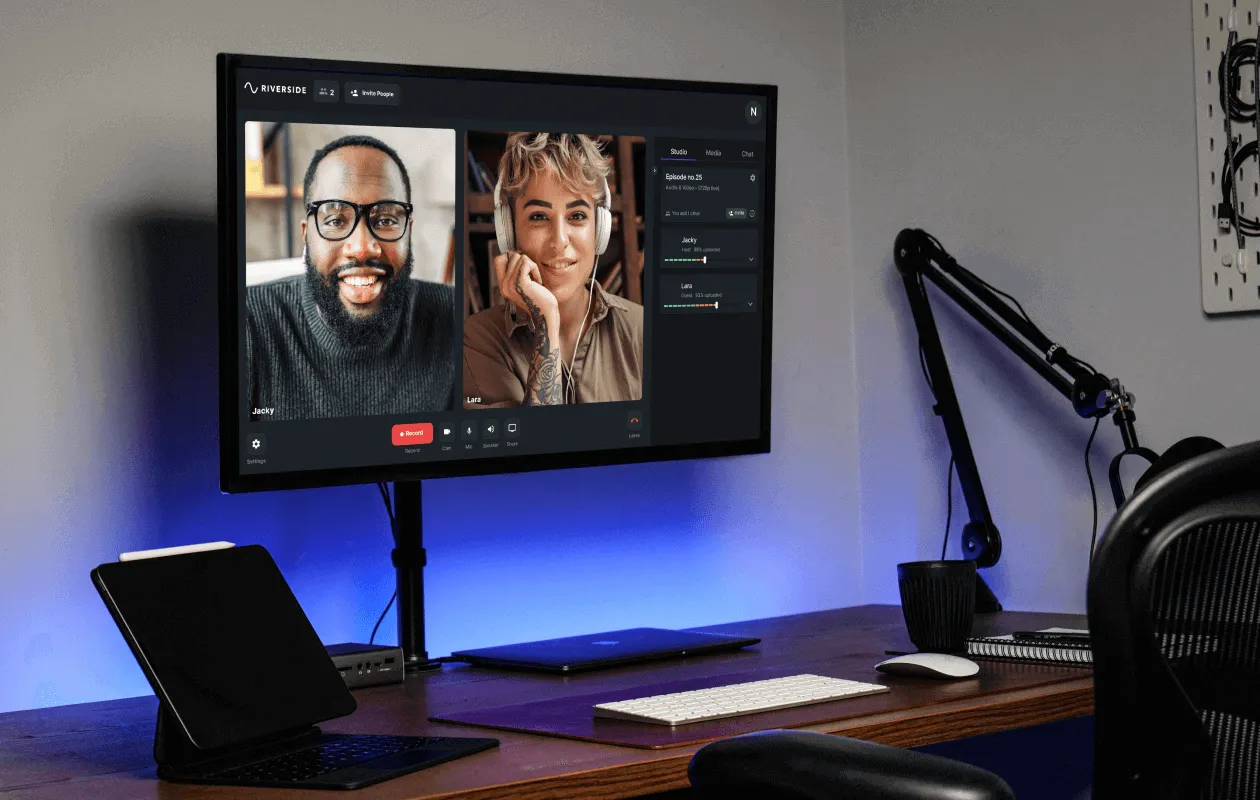
Tools for Recording Remote Interviews
6. Zencastr
Zencastr is an online platform specifically designed for recording remote interviews. It captures high-quality, uncompressed audio for each participant, regardless of internet quality, and allows you to record each speaker on a separate track. This makes post-production easier, as you can edit each person’s audio individually. Zencastr also offers automatic post-production features such as noise reduction and levelling, making it a great option for podcasters who frequently conduct remote interviews.
7. SquadCast
SquadCast is another platform designed for recording remote interviews, offering both audio and video recording in high-quality formats. It has a simple interface and provides individual audio tracks for each participant, ensuring that you can easily edit and mix the conversation. Additionally, SquadCast automatically backs up recordings to the cloud, minimizing the risk of losing important content due to technical issues.
8. Riverside. FM
Riverside. fm is an all-in-one platform for recording remote podcasts with high-quality audio and video. It captures locally on each participant’s device, meaning the recording won’t be affected by internet instability. The platform offers separate audio and video tracks for easy editing and also supports live streaming, making it an ideal option for podcasters who want to engage with their audience in real time.
9. Cleanfeed
Cleanfeed is another tool for remote recording, designed for professional-quality audio recording directly through your web browser. It’s great for podcasters who need to record interviews or discussions remotely and don’t want to sacrifice sound quality. Cleanfeed offers high-fidelity audio, multi-track recording, and a user-friendly interface. Its basic plan is free, making it accessible to podcasters on a budget.
10. Zoom
While Zoom is primarily known as a video conferencing tool, many podcasters use it to record remote interviews. The platform’s built-in recording feature makes it easy to capture both audio and video, and you can save separate audio tracks for each participant, which is essential for high-quality post-production editing. Zoom is widely used because of its reliability and ease of use, though it doesn’t offer the same level of audio fidelity as some of the dedicated podcasting platforms.

Podcast Microphones
11. Audio-Technica ATR2100x-USB
The Audio-Technica ATR2100x-USB is a dynamic microphone that offers both USB and XLR outputs, making it a versatile option for podcasters who want a mic they can grow with. It’s ideal for home recording, as it captures clear sound with minimal background noise. Its built-in headphone jack allows for real-time monitoring, helping you ensure that your audio is recorded at the right levels.
12. Shure SM7B
The Shure SM7B is a professional-grade dynamic microphone used by many top podcasters. Known for its smooth, warm sound and excellent noise rejection, the SM7B is perfect for recording in less-than-ideal environments. It requires an audio interface with XLR inputs and phantom power, so it’s a better fit for more experienced podcasters with a dedicated recording setup.
13. Blue Yeti
The Blue Yeti is a popular USB condenser microphone that offers great sound quality and flexibility for its price. With multiple pickup patterns (cardioid, bidirectional, omnidirectional, and stereo), it’s a versatile option for podcasters who may be recording solo, in pairs, or with multiple participants. The Blue Yeti is also known for its plug-and-play simplicity, making it a great choice for beginners.
14. Rode NT1-A
The Rode NT1-A is a large-diaphragm condenser microphone that offers excellent sound quality, particularly for spoken word. It’s known for its low self-noise, meaning it captures clear, quiet audio without adding unwanted hiss or hum. The NT1-A requires an audio interface and is ideal for podcasters who are looking to upgrade their sound quality with professional equipment.
15. Samson Q2U
The Samson Q2U is a dynamic microphone with both USB and XLR outputs, making it a great option for beginners who may want to upgrade their recording setup over time. It’s known for its durable construction and high-quality sound, and like the ATR2100x-USB, it also includes a headphone jack for real-time monitoring.
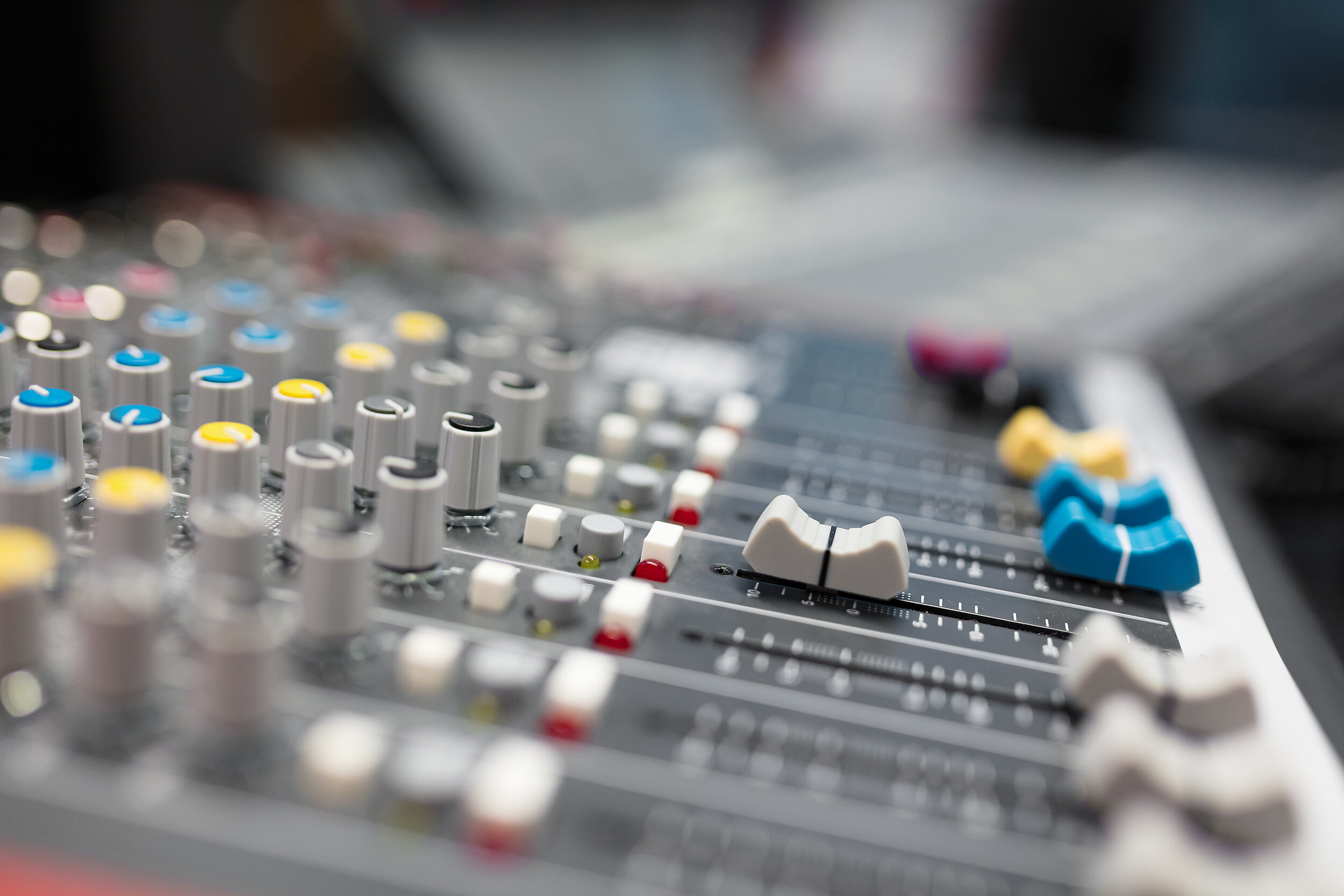
Audio Interfaces
16. Focusrite Scarlett 2i2
The Focusrite Scarlett 2i2 is a popular audio interface that offers high-quality sound and easy setup. With two XLR inputs and phantom power, it’s perfect for podcasters using condenser microphones. The Scarlett 2i2 connects to your computer via USB and offers zero-latency monitoring, ensuring that your recordings are clear and free from delay.
17. Zoom H6
The Zoom H6 is a portable audio recorder and audio interface, making it a versatile option for podcasters who need flexibility in their recording setup. It offers four XLR inputs (with the option to expand to six) and records directly to an SD card, making it great for recording on the go. You can also use it as an audio interface, connecting it to your computer for direct recording.
18. Behringer UMC22
The Behringer UMC22 is an affordable audio interface that offers great sound quality for its price. It has a single XLR input with phantom power, making it a good choice for solo podcasters or beginners who are just starting out with condenser microphones. It’s USB-powered and compatible with both Windows and macOS.
19. PreSonus AudioBox USB 96
The PreSonus AudioBox USB 96 is a two-channel audio interface that offers excellent sound quality and is perfect for podcasters who record with multiple microphones. It features two XLR inputs with phantom power, MIDI input/output, and a durable metal chassis. It’s a great option for podcasters who need a reliable, portable interface.
20. Tascam US-2x2HR
The Tascam US-2x2HR is a high-resolution audio interface that offers two XLR inputs and phantom power, making it a great option for podcasters who want to capture clear, professional-quality sound. It connects to your computer via USB and offers direct monitoring, so you can hear your audio without latency. It’s compatible with both Windows and macOS.

Podcast Headphones
21. Audio-Technica ATH-M50x
The Audio-Technica ATH-M50x are popular over-ear headphones known for their excellent sound quality and comfort. They provide accurate sound reproduction, making them a great option for podcasters who need to monitor their recordings closely. The closed-back design also helps to block out external noise, ensuring that you can focus on your audio.
22. Sony MDR-7506
The Sony MDR-7506 are professional-grade studio headphones known for their durability and clear sound. They are a popular choice among audio engineers and podcasters alike, offering a flat frequency response that allows you to hear your audio exactly as it was recorded. The MDR-7506 are also comfortable for long editing sessions.
23. Sennheiser HD 280 Pro
The Sennheiser HD 280 Pro are closed-back headphones that offer excellent sound isolation, making them a great option for podcasters who need to monitor their recordings in noisy environments. They provide accurate sound reproduction, ensuring that you can catch any issues with your audio before publishing your podcast.
24. Beyerdynamic DT 770 Pro
The Beyerdynamic DT 770 Pro are over-ear studio headphones known for their comfort and high-quality sound. They offer a wide frequency range, making them ideal for podcasters who want to hear every detail of their recordings. The closed-back design also helps to reduce sound leakage, ensuring that your microphone doesn’t pick up unwanted noise from your headphones.
25. AKG K240 Studio
The AKG K240 Studio headphones are semi-open headphones that offer a balanced sound and wide frequency range. While they may not provide as much sound isolation as closed-back headphones, they are great for podcasters who prefer a more natural, spacious sound. The AKG K240 Studio headphones are also known for their comfort, making them ideal for long recording and editing sessions.
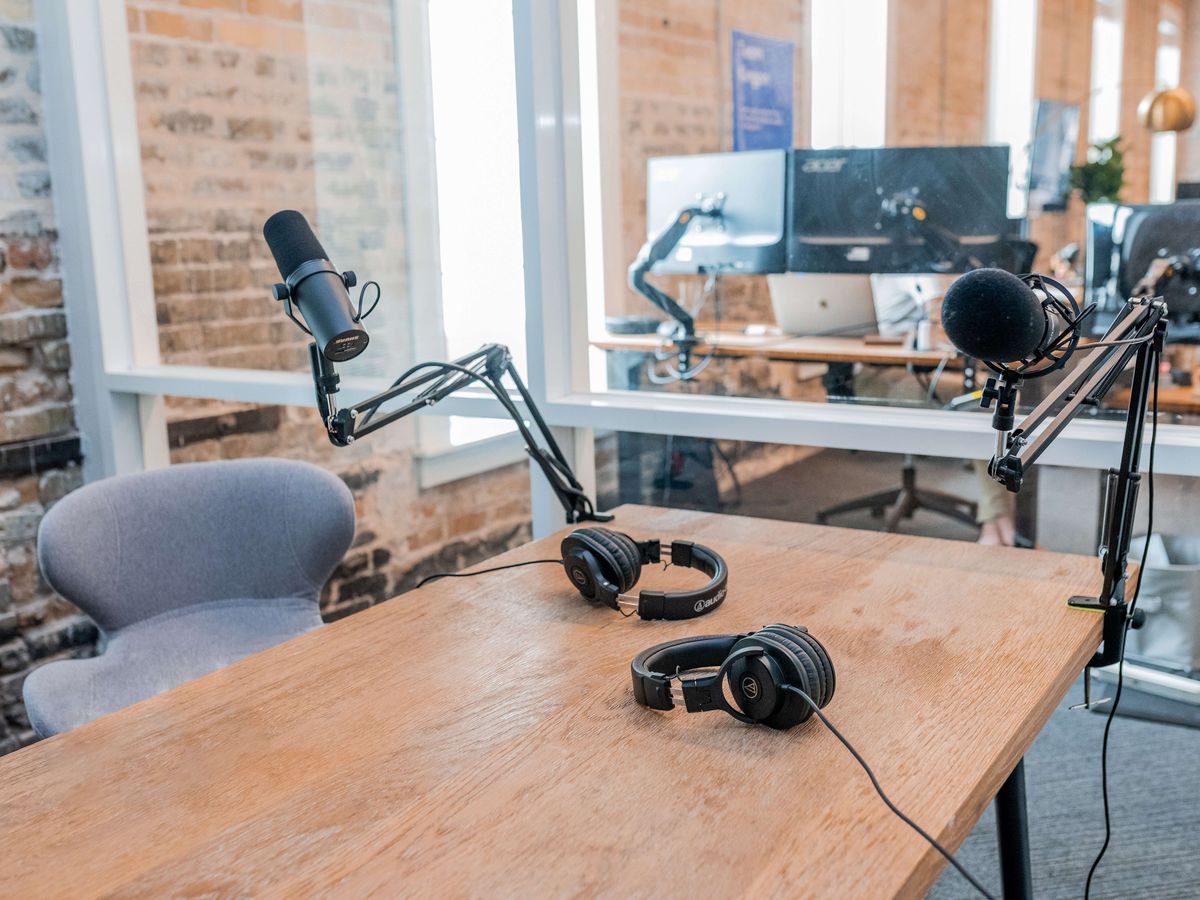
Podcast Hosting Platforms
26. Libsyn
Libsyn (Liberated Syndication) is one of the most popular podcast hosting platforms, offering reliable hosting and distribution services. It allows you to publish your podcast to all major platforms, including Apple Podcasts, Spotify, and Google Podcasts. Libsyn also provides detailed analytics, helping you track your audience and understand how your episodes are performing.
27. Buzzsprout
Buzzsprout is a user-friendly podcast hosting platform ideal for beginners and seasoned podcasters alike. It offers easy-to-use tools for uploading, hosting, and promoting your episodes. One standout feature is its ability to optimize your podcast for all major directories (such as Apple Podcasts, Spotify, and Google Podcasts) automatically. Buzzsprout also offers detailed analytics to track episode downloads, audience demographics, and listening trends. Their free plan gives you access to basic features, while paid plans unlock additional tools, such as transcription and advanced analytics.
28. Anchor by Spotify
Anchor is a free, all-in-one podcast hosting service owned by Spotify. It’s especially appealing for beginners because it simplifies the entire podcast creation process, including recording, hosting, distribution, and even monetization through sponsorships. Anchor provides unlimited hosting and automatic distribution to major platforms. A standout feature is its integration with Spotify, allowing podcasters to easily include music from Spotify’s library (under specific conditions). The platform also offers analytics and episode editing tools.
29. Podbean
Podbean is a versatile podcast hosting platform that caters to podcasters at every stage of their journey. Its user-friendly interface allows for quick uploads, and it offers unlimited storage and bandwidth on its paid plans. Podbean provides automatic distribution to major platforms, detailed analytics, and even monetization options through ads, premium content, and listener donations. It also has a built-in podcast website, making it easy to create a branded online presence for your show.
30. Transistor
Transistor is a premium podcast hosting service designed for businesses, brands, and independent podcasters who need reliable hosting and robust analytics. With Transistor, you can host multiple shows under one account, and it offers detailed analytics that provide insights into your audience’s behaviour and episode performance. The platform also allows you to create private podcasts, which are ideal for internal company podcasts or subscription-based shows.
31. Captivate
Captivate is a relatively new podcast hosting platform that focuses on growth and monetization. It offers unlimited podcasts and episodes on all plans, detailed analytics, and customizable podcast websites. One of Captivate’s standout features is its marketing tools, which help you grow your audience by making it easier to share episodes on social media, create email opt-ins, and build a subscriber list. Captivate also integrates with podcasting apps and directories to distribute your episodes seamlessly.
32. Blubrry
Blubrry is a robust podcast hosting service that includes a variety of tools for podcasters, including media hosting, podcast statistics, and a WordPress plugin called PowerPress, which simplifies publishing episodes directly from your WordPress website. Blubrry’s analytics are detailed and provide insight into where and how listeners are accessing your content. It’s known for its customer support and flexible pricing plans that grow with your podcast.

Podcast Editing Tools
33. Auphonic
Auphonic is an automated audio post-production tool that improves the overall sound quality of your podcast. It automatically balances levels, removes background noise, and applies audio processing, making your episodes sound more polished without requiring advanced editing skills. Auphonic is available as a web-based tool and a desktop application. It’s particularly useful for podcasters who don’t have time for manual audio editing but still want professional sound quality.
34. Descript
Descript is a unique and powerful podcast editing tool that combines transcription with audio and video editing. It allows you to edit audio by editing the transcript, which makes it an intuitive tool for both beginners and experienced podcasters. Descript also offers multi-track recording, screen recording, and AI-powered voice editing. With its collaborative features, Descript is ideal for podcast teams who need to work on episodes together.
35. Alitu
Alitu is a web-based podcast editing and production tool designed for podcasters who want to simplify the editing process. It automates many aspects of editing, such as noise reduction and volume levelling, while offering a drag-and-drop interface for trimming and stitching audio clips. Alitu also allows you to add intro and outro music, apply effects, and publish directly to your podcast host, making it an all-in-one solution for podcast production.
36. Hindenburg Pro
Hindenburg Pro builds on the features of Hindenburg Journalist and adds advanced options for podcasters looking to refine their audio production. This DAW offers a more comprehensive set of editing tools, such as multitrack editing, automated loudness correction, and non-destructive editing. Hindenburg Pro is specially designed for podcasters and radio producers who want to focus on storytelling and spoken-word audio while achieving professional sound quality.
37. Reaper
Reaper is a highly customizable DAW that offers a full range of audio production features for podcasters. While it’s primarily known for music production, Reaper’s powerful editing tools make it a strong contender for podcast editing as well. It supports multi-track recording, advanced audio processing, and a wide range of plugins, allowing podcasters to achieve professional sound quality without spending a lot of money. Its only drawback is a steeper learning curve compared to simpler tools like Audacity.
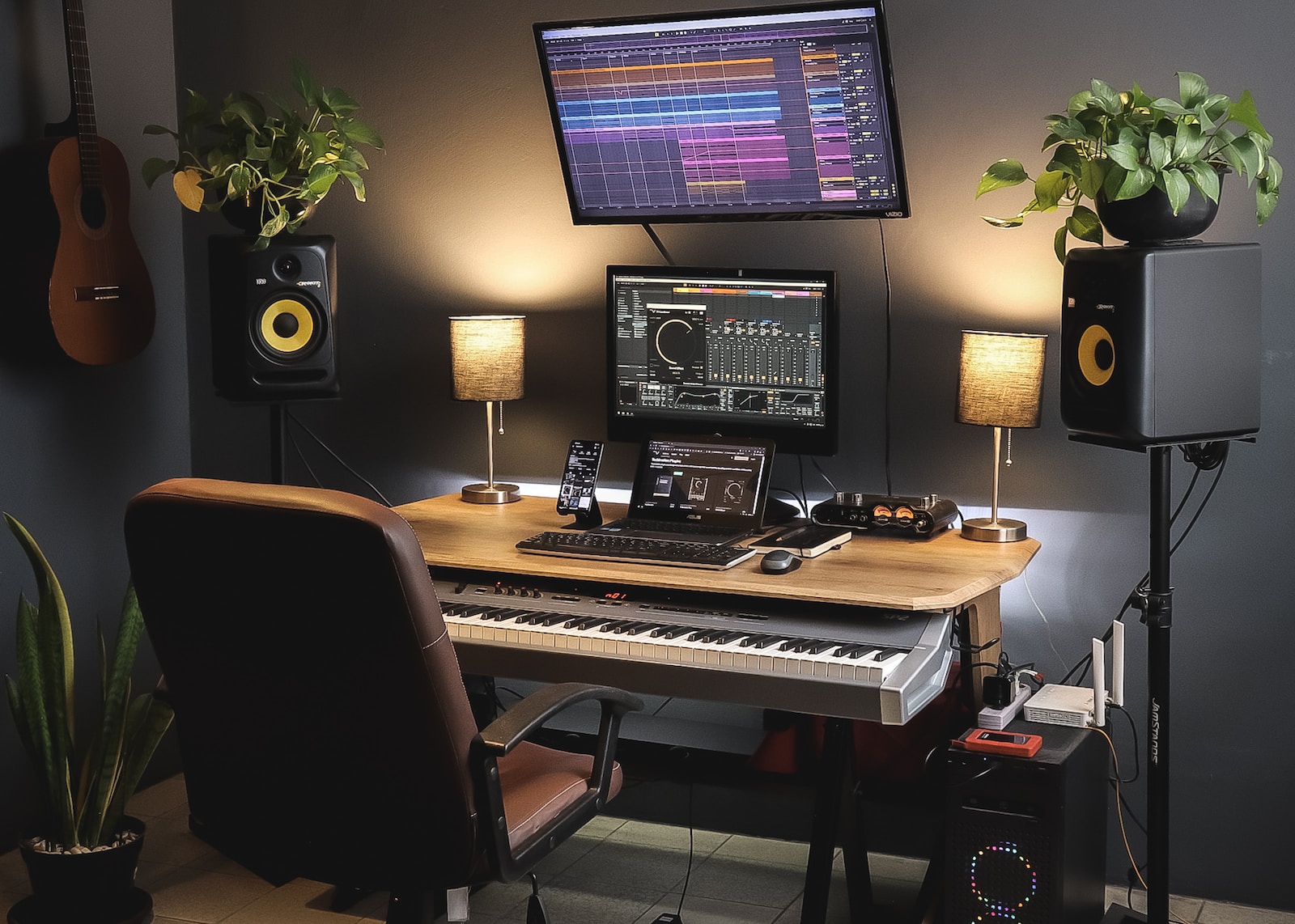
Podcast Scheduling and Collaboration Tools
38. Calendly
Calendly is an automated scheduling tool that simplifies booking podcast guests by allowing them to choose a time that works for both parties. It eliminates the back-and-forth of scheduling emails, integrates with Google Calendar, and sends reminders to guests. This tool is essential for podcasters who frequently record interviews or collaborate with co-hosts and need an easy way to manage appointments.
39. Google Calendar
Google Calendar is a free, widely used scheduling tool that integrates with many other apps and services, making it a valuable tool for podcasters. You can schedule recording sessions, meetings with guests, and episode release dates. The shared calendar functionality is especially useful if you’re working with a team or have multiple co-hosts who need to coordinate schedules.
40. Doodle
Doodle is a simple polling tool that helps you schedule meetings and interviews by letting participants select the times they’re available. It’s great for coordinating group discussions or episodes with multiple guests. Once every one selects their availability, you can easily choose the best time and schedule it directly on your calendar.
41. Slack
Slack is a team communication tool that helps podcast teams collaborate more efficiently. You can create channels for specific topics, such as episode ideas, scheduling, or marketing strategies. Slack also integrates with many other tools like Google Drive and Trello, making it easy to share files, manage tasks, and keep track of ongoing projects.
42. Trello
Trello is a project management tool that helps you organize your podcast’s production schedule. It uses boards, lists, and cards to track the progress of each episode from concept to release. You can assign tasks to team members, set due dates, and attach files or links. Trello’s visual interface makes it easy to see the status of your podcast episodes at a glance.
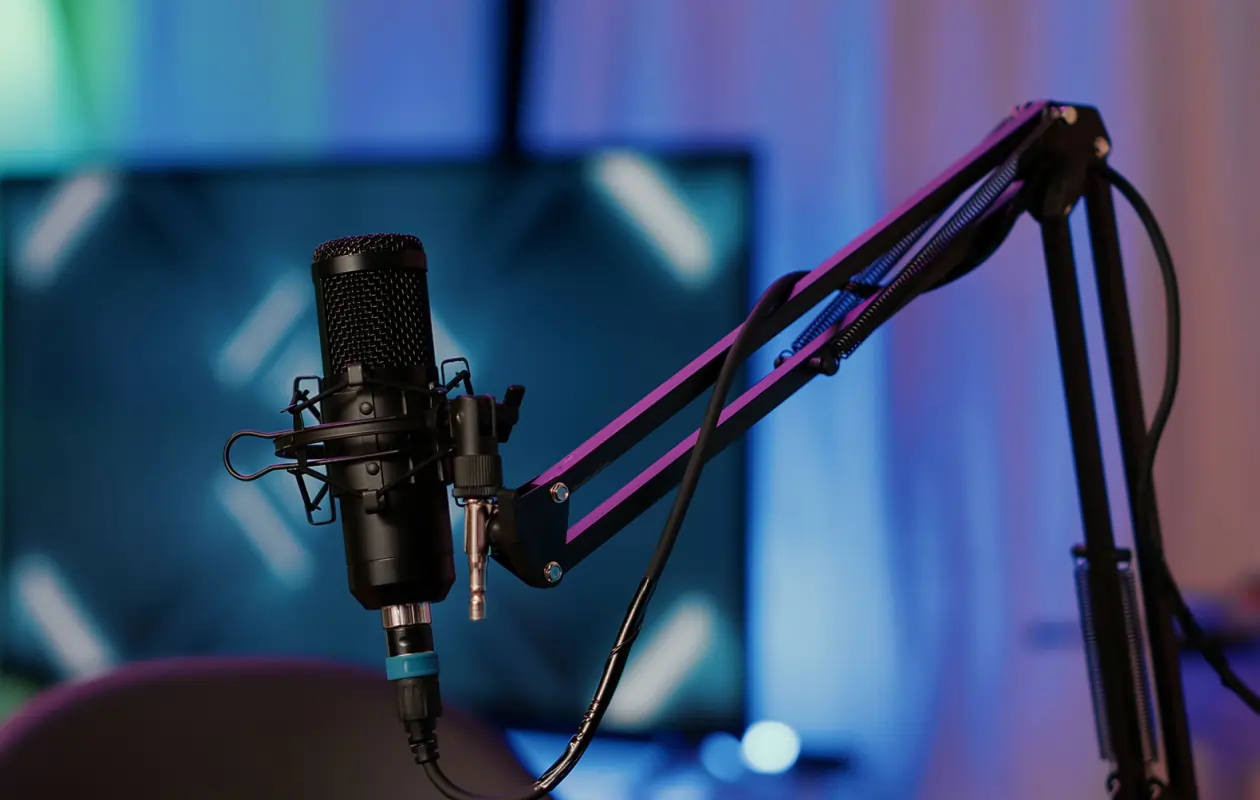
Podcast Promotion and Marketing Tools
43. Headliner
Headliner is a popular tool for creating promotional videos for your podcast. It allows you to turn audio clips into engaging videos by adding waveforms, captions, and images. These videos can be shared on social media platforms like Instagram, Twitter, and Facebook to promote new episodes and attract listeners. Headliner is user-friendly and offers free and paid plans, making it accessible to podcasters of all levels.
44. Canva
Canva is an easy-to-use graphic design tool that allows you to create professional-looking podcast artwork, social media graphics, and marketing materials. With pre-made templates for podcast covers, episode promotion posts, and other visual content, Canva simplifies the design process. It also offers a range of free and paid design elements, making it a valuable tool for podcasters who want to enhance their brand identity.
45. Buffer
Buffer is a social media scheduling tool that allows you to plan and schedule posts across multiple platforms, including Twitter, Facebook, Instagram, and LinkedIn. It helps podcasters save time by automating social media promotion for new episodes and other content. Buffer also provides analytics to track the performance of your posts and see which ones are driving engagement.
46. Mailchimp
Mailchimp is an email marketing tool that helps podcasters build and maintain an email list. You can create email campaigns to notify your subscribers of new episodes, exclusive content, and other updates. Mailchimp also offers detailed analytics, so you can see how your emails are performing and adjust your strategy accordingly. With its free plan, Mailchimp is a great choice for podcasters who are just starting to build their audience.
47. ConvertKit
ConvertKit is another email marketing tool, but it’s specifically designed for creators, including podcasters. It offers more advanced features than Mailchimp, such as automation workflows and the ability to segment your audience based on their behaviour. ConvertKit is a powerful tool for podcasters who want to grow their email list and engage with their listeners through targeted campaigns.

Podcast Monetization Tools
48. Patreon
Patreon is a platform that allows podcasters to earn money directly from their listeners through monthly subscriptions. Fans can support your show by pledging a set amount each month, and in return, they receive exclusive content or perks, such as bonus episodes, early access, or behind-the-scenes updates. Patreon is an excellent tool for podcasters who want to build a community of dedicated listeners and create an additional income stream.
49. Acast
Acast is a podcast hosting platform that also offers monetization options through dynamic ad insertion and listener support. With Acast, you can monetize your show by allowing brands to place ads in your episodes, and listeners can contribute directly to your show via a donation feature. It’s a great option for podcasters who want to make money from their content without relying solely on sponsorships.
50. Supercast
Supercast is a subscription platform that allows podcasters to offer premium content to their listeners. You can create private podcast feeds that are available only to paying subscribers, giving your audience an incentive to support your show financially. Supercast integrates with popular podcast hosting platforms and provides detailed analytics on your subscribers.
51. Podcorn
Podcorn is a marketplace that connects podcasters with brands for sponsorship opportunities. Unlike traditional podcast advertising, where you have to meet specific listener metrics, Podcorn allows podcasters of all sizes to pitch sponsorship deals to brands. You maintain control over the creative aspects of the ad, allowing you to ensure that it aligns with your podcast’s style and audience.

Podcast Analytics Tools
52. Chartable
Chartable is an analytics platform that helps podcasters track their show’s performance across multiple platforms, such as Apple Podcasts, Spotify, and Google Podcasts. It provides detailed insights into your podcast’s rankings, downloads, and audience demographics. Charitable also offers tools for measuring the effectiveness of your promotional efforts, such as tracking clicks on marketing links.
53. Podtrac
Podtrac is a free podcast analytics service that provides podcasters with detailed insights into their audience size, demographics, and engagement levels. It’s widely used by podcasters who want to understand their audience better and track the growth of their show. Podtrac also offers podcast ranking charts that highlight top-performing podcasts across various categories.
54. Google Analytics
Google Analytics is a web analytics tool that can help podcasters track the performance of their podcast website. By integrating Google Analytics with your website, you can see how visitors are interacting with your content, where they’re coming from, and which episodes or blog posts are driving the most traffic. This information can help you refine your marketing strategy and improve your audience engagement.
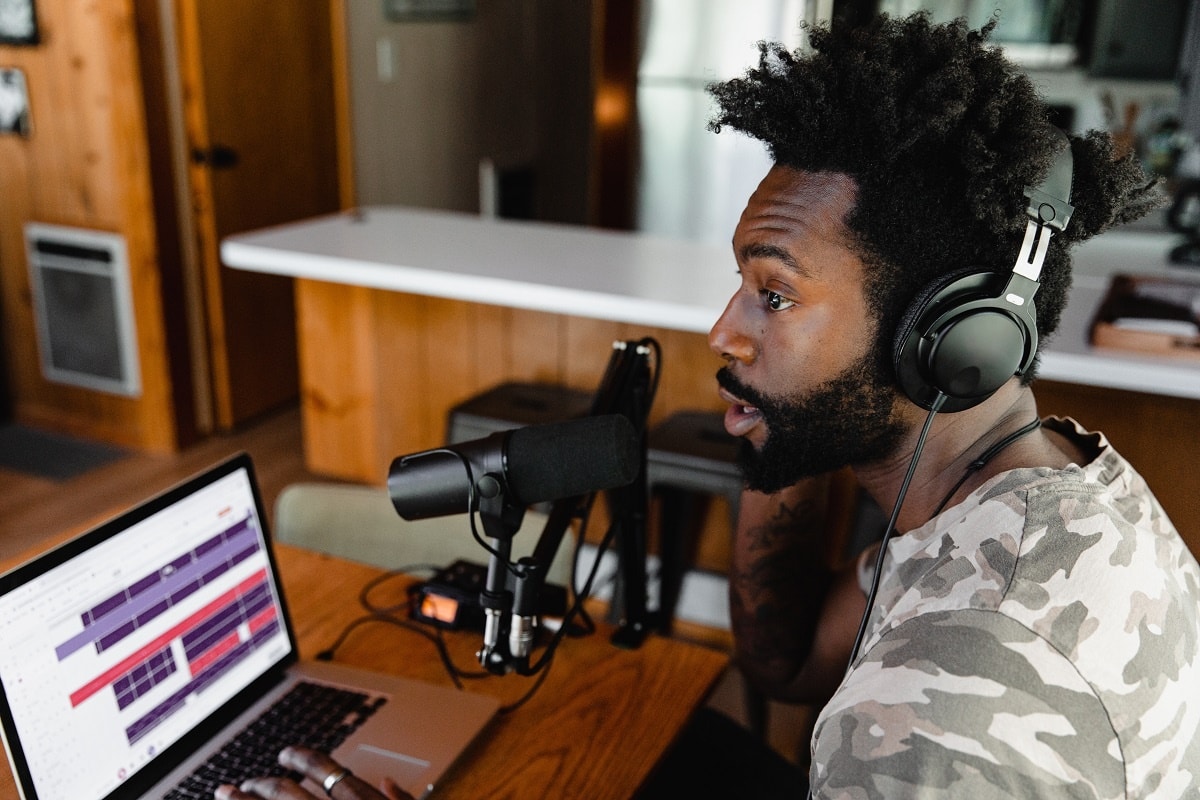
Podcast Transcription Tools
55. Rev
Rev is a transcription service that offers both human and automated transcription options. Human transcriptions are highly accurate and are ideal for podcasters who need precise transcripts for accessibility or content repurposing. Rev also offers automated transcription, which is faster and more affordable, though less accurate than human transcription.
56. Otter.ai
Otter.ai is an AI-powered transcription service that offers real-time transcription of your podcast episodes. It’s a great tool for podcasters who need quick, affordable transcripts for show notes, blog posts, or accessibility purposes. Otter.ai also integrates with platforms like Zoom, making it easy to transcribe remote interviews.
57. Descript
Descript, in addition to its editing capabilities, also offers transcription services. It transcribes your podcast episodes in real time, allowing you to edit audio by modifying the transcript. Descript’s transcription service is powered by AI, and while it may require some manual corrections, it’s a fast and efficient way to generate transcripts for your episodes.
58. Trint
Trint is an AI-powered transcription tool that offers fast, automated transcriptions of audio and video files. It’s known for its easy-to-use interface and collaborative features, allowing you to share transcripts with team members for review or editing. Trint is ideal for podcasters who need quick, affordable transcriptions for their episodes.
Podcast Review and Directory Tools
59. Podchaser
Podchaser is often referred to as the IMDb of podcasts. It allows listeners to discover new shows, leave reviews, and rate individual episodes. For podcasters, Podchaser is a valuable tool for building your show’s credibility and attracting new listeners. You can claim your podcast on Podchaser and encourage your audience to leave reviews, which can help your show rise in the platform’s rankings.
60. Apple Podcasts Connect
Apple Podcasts Connect is Apple’s platform for managing and submitting your podcast to Apple Podcasts. It’s one of the most important directories for podcasters since Apple Podcasts is a primary source of listeners for many shows. Apple Podcasts Connect allows you to monitor your podcast’s performance, manage episode releases, and view listener reviews.
61. Podcast Addict
Podcast Addict is a popular podcast app for Android users that allows listeners to discover, subscribe to, and rate podcasts. For podcasters, being listed on Podcast Addict is essential for reaching Android listeners, as it’s one of the most widely used podcast apps on the platform.
62. Stitcher
Stitcher is a podcast app and directory that offers a premium subscription service for exclusive content. For podcasters, being listed on Stitcher can help you reach a broader audience, especially if you create premium content that you want to monetize. Stitcher also offers detailed analytics, so you can track your podcast’s performance on the platform.

Podcast Sound Effects and Music Libraries
63. Epidemic Sound
Epidemic Sound is a royalty-free music library that provides podcasters with high-quality tracks for use in episodes. It offers a wide variety of music genres and sound effects, and its licensing terms are simple, ensuring that you can use the music in your podcast without worrying about copyright issues. Epidemic Sound is a great resource for podcasters who want to add professional background music to their episodes.
64. AudioJungle
AudioJungle is another popular source for royalty-free music and sound effects. It’s part of the Envato Market network and offers thousands of tracks and sound effects that you can purchase individually for use in your podcast. AudioJungle is ideal for podcasters who need specific music or sound effects to enhance their episodes.
65. Free Music Archive
The Free Music Archive is a collection of free, legal music that podcasters can use in their episodes. It offers a wide range of genres and tracks, all available for download under various Creative Commons licenses. The Free Music Archive is a valuable resource for podcasters who need music but are working with a limited budget.

Creating a successful podcast involves much more than just recording your voice; it requires a combination of high-quality tools and strategic planning to stand out in a crowded marketplace. From selecting the right recording software and equipment to choosing a hosting platform, scheduling guests, and marketing your show, the process of building a podcast can be streamlined and enhanced by utilizing the essential tools we’ve covered in this guide.
Whether you’re just starting or looking to take your podcast to the next level, having the right resources can make a world of difference in your production quality, listener experience, and ultimately, your podcast’s success. Tools like Audacity, Adobe Audition, and GarageBand provide you with the technical ability to capture crisp audio, while hosting platforms such as Libsyn, Buzzsprout, and Podbean ensure that your podcast reaches the ears of listeners across the globe. Additionally, leveraging marketing tools like Canva and Headliner, along with monetization options like Patreon and Podcorn, can help you grow your audience and generate income from your passion project.











